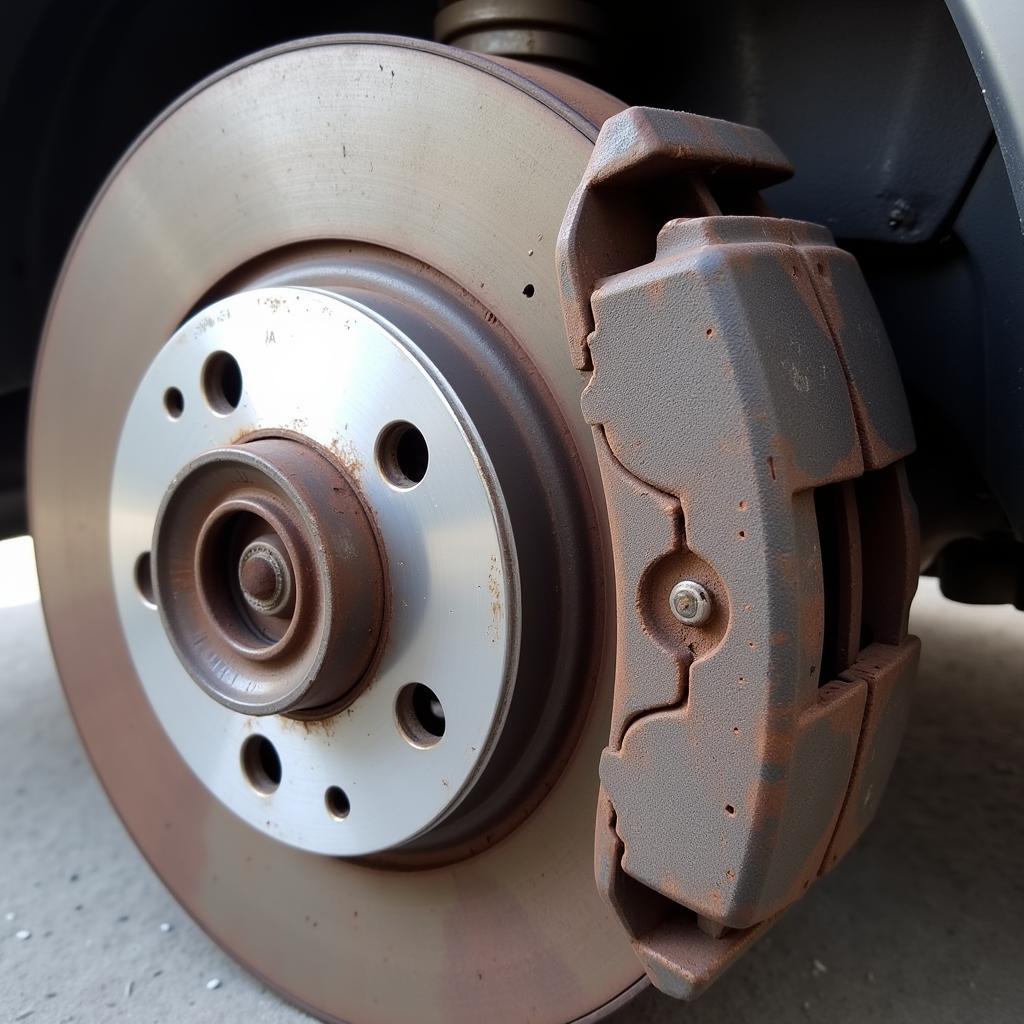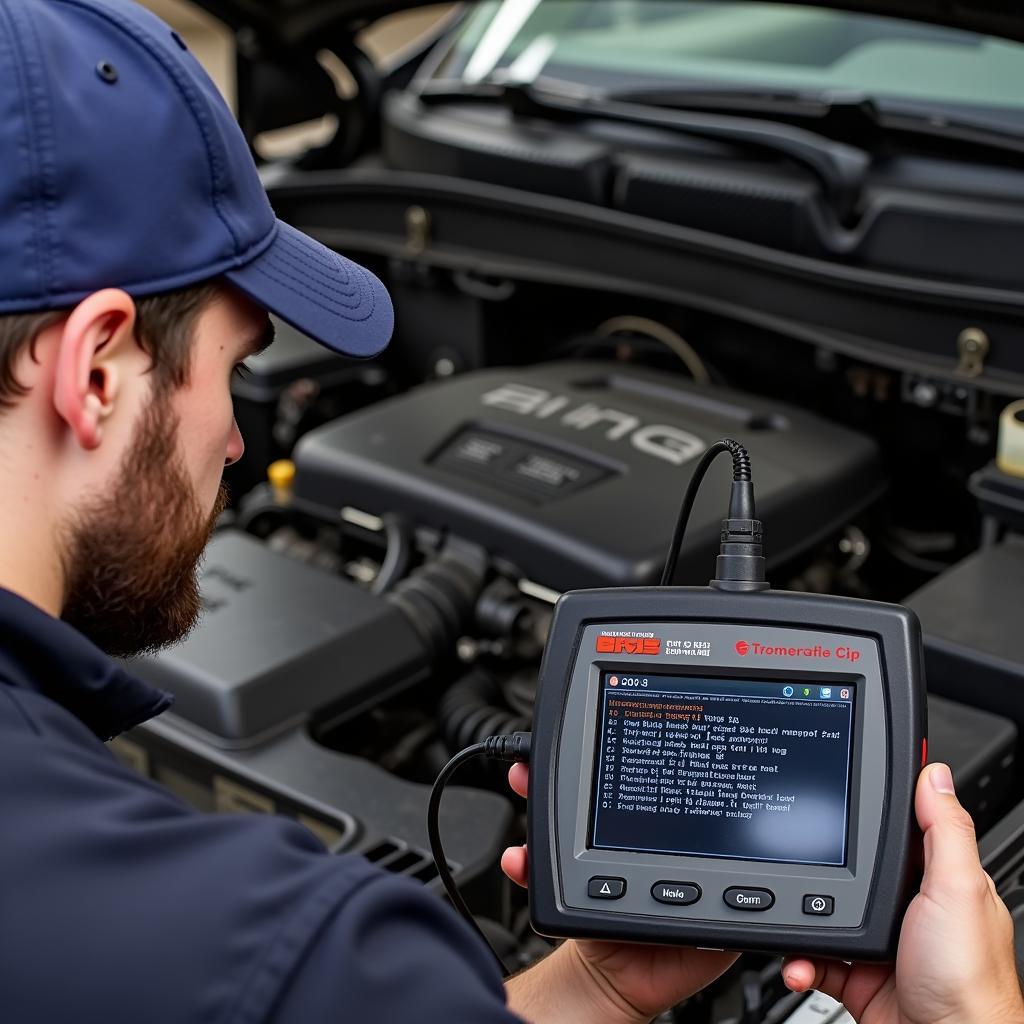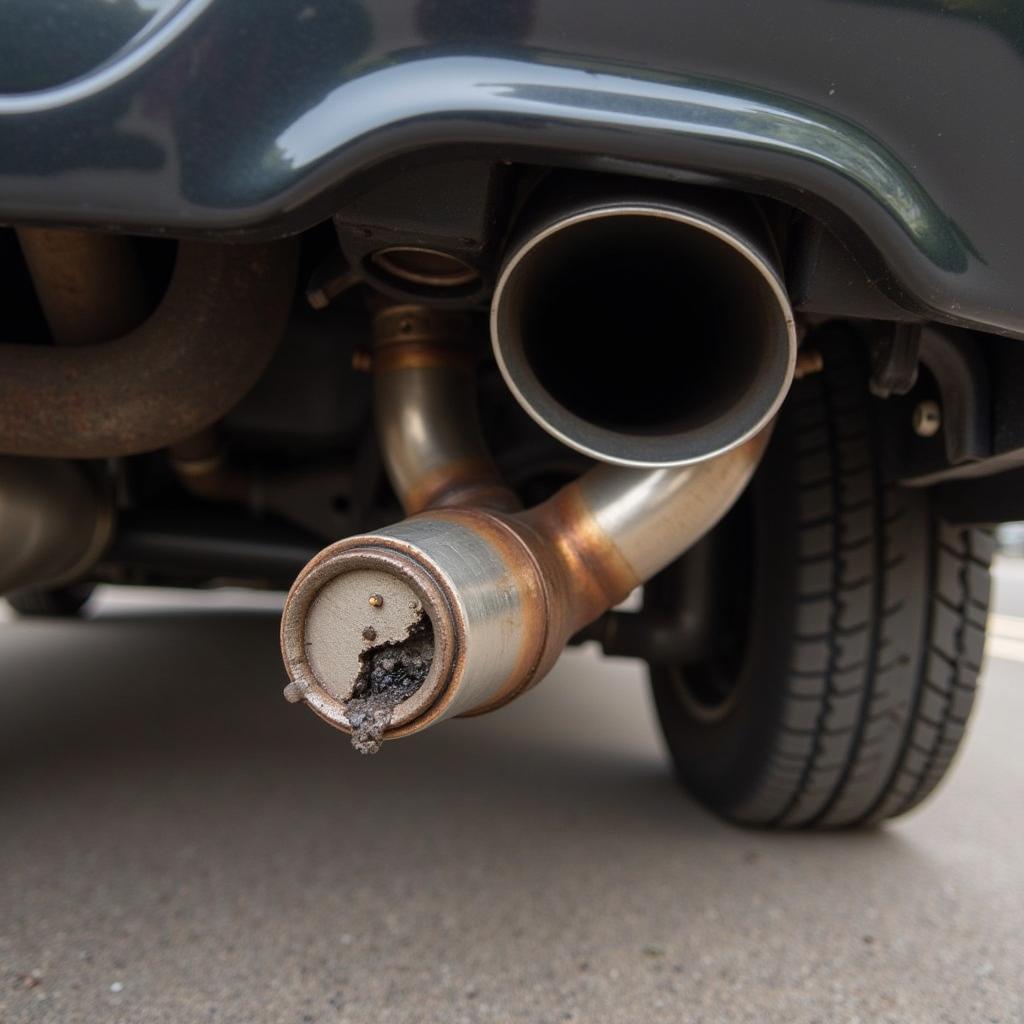The dreaded brake warning alarm in your 2003 Buick Rendezvous can be a heart-stopping experience. Understanding what triggers this alarm and how to address it is crucial for both your safety and the longevity of your vehicle. This article will guide you through the common causes of a 2003 Buick Rendezvous brake warning alarm, providing troubleshooting steps and solutions, including insights into remote diagnostics and software fixes.
Understanding the Brake Warning Alarm in Your 2003 Buick Rendezvous
The brake warning alarm in your Buick Rendezvous is designed to alert you to potential issues within your braking system. It can indicate anything from low brake fluid to more serious problems like a malfunctioning ABS system. Ignoring this alarm can lead to dangerous driving conditions and costly repairs.
Common Causes of the 2003 Buick Rendezvous Brake Warning Alarm
Several factors can trigger the brake warning alarm in a 2003 Buick Rendezvous. Here are the most common culprits:
- Low Brake Fluid: This is often the simplest cause. Brake fluid levels decrease naturally over time due to wear and tear.
- Worn Brake Pads: As brake pads wear down, the brake fluid reservoir level drops. This can trigger the warning alarm.
- Faulty Brake Sensor: A malfunctioning sensor can send incorrect signals to the vehicle’s computer, activating the alarm even when there’s no actual problem.
- ABS Issues: Problems with the Anti-lock Braking System (ABS), such as a faulty wheel speed sensor or a problem with the ABS module, can trigger the alarm.
- Parking Brake Engaged: Sometimes, the alarm is simply a reminder that you haven’t disengaged the parking brake.
Troubleshooting the Brake Warning Alarm
Before rushing to a mechanic, you can perform some basic troubleshooting steps:
- Check the Parking Brake: Ensure the parking brake is fully released.
- Inspect Brake Fluid Level: Locate the brake fluid reservoir and check the fluid level. If it’s low, add the correct type of brake fluid.
- Check Brake Pads: Visually inspect the brake pads through the wheel spokes. If they appear thin, they likely need replacement.
Remote Diagnostics and Software Solutions
Modern automotive technology allows for remote diagnostics and software solutions for certain brake issues. Specialized software can pinpoint the exact cause of the warning light, saving valuable time and potentially reducing repair costs.
“Remote diagnostics is revolutionizing the automotive repair industry,” says John Smith, Automotive Electrical Engineer at Advanced Auto Solutions. “It allows us to quickly identify problems and even perform software updates remotely, minimizing downtime for the customer.”
When to Seek Professional Help
If the basic troubleshooting steps don’t resolve the issue or if you suspect a more complex problem like an ABS malfunction, it’s essential to consult a qualified mechanic. Delaying professional assistance could lead to more extensive and expensive repairs.
 Worn brake pads on a 2003 Buick Rendezvous
Worn brake pads on a 2003 Buick Rendezvous
Utilizing Advanced Diagnostic Tools
Advanced diagnostic tools can pinpoint the root cause of the brake warning alarm. These tools can read the vehicle’s computer codes and identify specific issues within the braking system, including ABS faults and sensor malfunctions. This level of precision allows for targeted repairs, avoiding unnecessary replacements.
“Utilizing advanced diagnostic tools is paramount in efficiently diagnosing complex brake system issues,” says Maria Garcia, Lead Technician at Precision Auto Diagnostics. “These tools empower us to provide accurate and cost-effective solutions for our clients.”
 Using an ABS diagnostic scan tool on a 2003 Buick Rendezvous
Using an ABS diagnostic scan tool on a 2003 Buick Rendezvous
Conclusion
The 2003 Buick Rendezvous brake warning alarm shouldn’t be ignored. By understanding the potential causes and utilizing troubleshooting steps, remote diagnostics, and professional assistance when needed, you can maintain a safe and reliable braking system. Addressing the brake warning alarm promptly prevents further damage and ensures your 2003 Buick Rendezvous continues to perform optimally.
FAQ
-
What should I do if my brake warning light comes on while driving? Safely pull over to the side of the road and check your parking brake and brake fluid level. If you notice any leaks or significant issues, contact a mechanic immediately.
-
How often should I check my brake fluid? It’s a good practice to check your brake fluid level at least once a month.
-
Can I add any type of brake fluid to my 2003 Buick Rendezvous? No, use only the recommended brake fluid specified in your owner’s manual.
-
How long do brake pads typically last? Brake pad lifespan varies depending on driving habits and conditions, but typically they last between 25,000 and 70,000 miles.
-
What is the cost of replacing brake pads on a 2003 Buick Rendezvous? The cost varies depending on location and the specific type of brake pads, but it typically ranges from $150 to $300 per axle.
-
Can remote diagnostics fix all brake problems? While remote diagnostics can identify many issues and even perform some software updates, physical repairs are often necessary.
-
What are the signs of a failing ABS system? Common signs include a pulsating brake pedal, difficulty stopping, and the ABS warning light illuminating.

